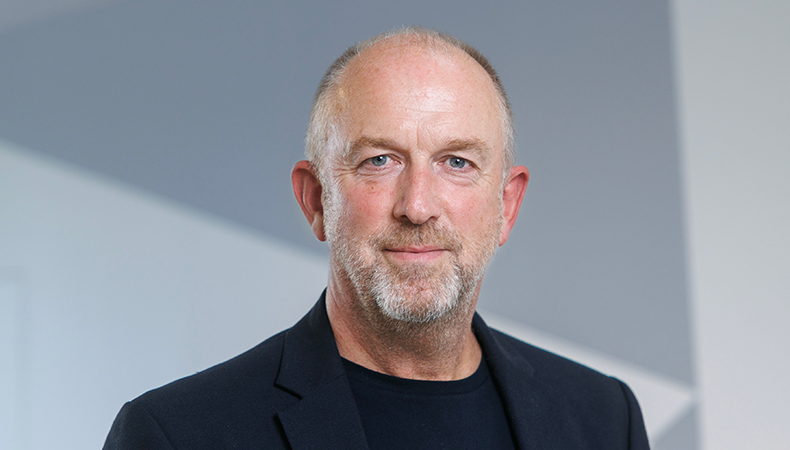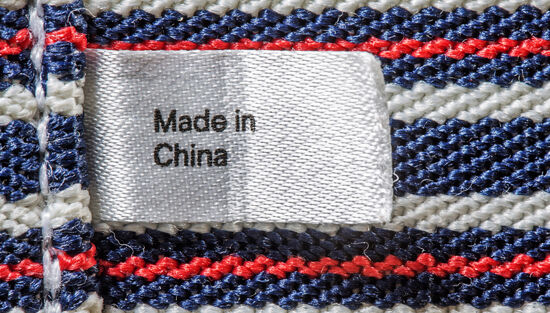Steve Lister: a practical guide to making green claims
Sustainability and print consultant Steve Lister describes how printers can avoid accusations of greenwashing.
“Eco-friendly, environmentally friendly, natural, biodegradable, eco, green, pure, organic, non-polluting – these are words to avoid now,” says sustainable print expert Steve Lister. “Many of them are meaningless; they were great a few years ago when the sustainability journey started, but now I would suggest printers remove those words from their marketing and their products at all costs.”
Ever since a company’s eco-credentials became a selling point, the real environmental performance of certain products has been exaggerated.
But while, in the past, any reaction to wrongdoing was largely a question of ethics, with the introduction of the Green Claims Directive (GCD) and increasing oversight from advertising bodies, it is rapidly becoming a matter of legality.
One problem with this, Steve says, is that greenwashing isn’t always deliberately cynical.
“We are currently having a lot of conversations – both within my consultancy and in my role as Head of Global Sustainability with POPAI UK and Ireland – around greenwashing and how to create a credible new narrative around sustainability that is true and transparent, because that’s really the opposite to greenwashing.
“However, people are experiencing issues because they are unsure exactly where they are in relation to those two points. Sometimes, people don’t even know they are greenwashing.”
New regulations
Set to combat all variations of greenwashing is the Green Claims Directive (GCD).
“This is an EU directive that was first looked at in 2022, then it went to the European Parliament in 2023, and in March 2024 the European Commission adopted the proposals of the directive and it is now going out to individual countries to be ratified,” Steve says.
If you make a claim like a product is 100% sustainable or it is sustainably sourced, that is really difficult to substantiate
“Even though the UK is no longer part of the European Union, the GCD will have an impact here, too. Bodies in the UK, such as the Competition and Markets Authority [CMA] have begun looking at it. The GCD will affect all companies working in the UK market who make any environmental or sustainability claims, regardless of how small the claim is. If you are working with a global brand or retailer, it will definitely affect you.
 Steve Lister
Steve Lister
“There are now penalties for greenwashing, with the fines being as much as 4% of a company’s annual income. If you are a small printer or a small agency working for a large brand, it won’t be just 4% of your turnover, it will be 4% of the major global retailer or brand who believed you when you said the print products you provided were made from the most sustainable, most eco-friendly, most recyclable products.
“Therefore, print businesses have to be aware that companies will get punished for using the wrong wording, and ultimately they could get fined. And I think the fines will really start to focus people’s attention.”
The right words
With potential legal and financial penalties for incautious statements around sustainability, it’s important to know what wording you can use.
“We’ve been looking to help people navigate this, because it is difficult. When we went into the EU and started to look in-depth at the documents behind the legislation, they were already starting to include lists of words they should be avoiding when it comes to sustainability claims,” Steve says.
There is a caveat, though. Some of those words such as ‘eco-friendly’ can be used if you can substantiate their use. But significant care is needed here too.
“If you make a claim like a product is 100% sustainable or it is sustainably sourced, that is really difficult to substantiate because no company or product can be 100% sustainable. You have to provide more detail and information,” Steve says.
“Even the word ‘recyclable’ is a vague term. If a product is recyclable, is it 1% recyclable or 100% recyclable? If a product is biodegradable, is it biodegradable over six months in certain conditions, or is it biodegradable in 20 years if you just leave it outside?
Do a little bit of homework to make sure, to the best of your knowledge, you are doing the right thing and using the right materials
“I think we will see companies being more scrutinised around their sustainability claims and they will have to be more transparent about the statements they are making. Some of these ‘eco’ words will be dropped completely while others will have to be explained more so that consumers will understand them more fully.”
To find out more, the CMA has a dedicated Green Claims Code website.
Best practice for printers
So how can printers avoid greenwashing? Steve is says you cannot do it alone – you have to take measures that fit with your own position in the supply chain.
“My first piece of advice would be: know your materials and understand what you are using. Go to your material suppliers – inks, chemicals, paper – and have an intelligent conversation with them,” he says.
“Ask why their products are better than alternatives. Ask to see the data sheets. Ask where the materials are made – it might be a great material, but you might be shipping it across the world and there could be a better version nearer to home. Then you can speak to your customers with authority and explain why you are using certain inks or why you have swapped to certain materials. You will be surprised how quickly your clients will perceive you as sustainability experts.
“The world has moved on and the whole sustainability journey has matured. I’m having conversations now with brands and retailers that I just wouldn’t have imagined even pre-Covid. Those conversations are becoming more detailed.
“People are starting to ask questions, and you might not be able to answer everything because the sustainability landscape is constantly changing. But be proud of what you do and do a little bit of homework to make sure, to the best of your knowledge, you are doing the right thing and using the right materials.”
Seize the opportunity
And that is the message that Steve wants the print sector to embrace: yes, avoiding greenwashing is a legal and ethical responsibility, but for forward-thinking companies it offers an opportunity too.
It is an exciting time to be in sustainability in print and you can create a beautiful narrative that we’ve never been able to do before
“The opportunity to position yourself as a sustainable partner within the supply chain has never been better. If I was a salesman inside a print company, I would be excited now because it is the perfect opportunity to stand out against your competitors,” Steve says.
“We’ve got more materials than we’ve ever had and more information than we’ve ever had. We have carbon footprinting of materials, inkjet printers that use efficient energy and we have more sustainable supply chains than we’ve ever had. It is an exciting time to be in sustainability in print and you can create a beautiful narrative around print that we’ve never been able to do before.
“So I think this is a very positive movement. It will make things more transparent, open and more honest. These measures will enable global brands and retailers, and anybody looking at print activations, to make informed and educated choices.”
Become a FESPA member to continue reading
To read more and access exclusive content on the Club FESPA portal, please contact your Local Association. If you are not a current member, please enquire here. If there is no FESPA Association in your country, you can join FESPA Direct. Once you become a FESPA member, you can gain access to the Club FESPA Portal.
Recent news

Regulation guidance: Corporate Sustainability Reporting Directive
The Corporate Sustainability Reporting Directive (CSRD) is now in effect, but with further changes on the horizon, what does it mean for printers? Sustainability consultant Rachel England outlines everything you need to know and talks to Apigraf about how your business may be affected.

Web-to-print design: Canva versus Kittl
We look at popular design packages Canva and Kittl to determine how they compare regarding graphic design and print on demand.

FESPA in South Africa: the print skills to thrive
Printing SA’s Career Day inspired young Cape Town learners to explore printing and packaging careers.

The rise of Chinese printers
Chinese printing companies are on the rise, and have their eyes set on the UK and EU marketplace. Some have made an instant impact; others are running into issues with maintenance and language barriers. What does the future hold for Chinese printing firms, and how can you navigate working with them?